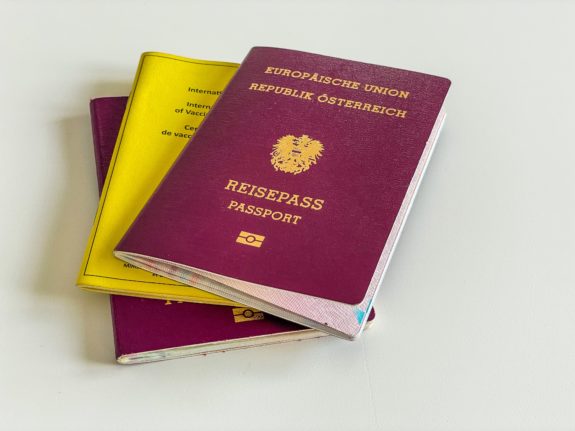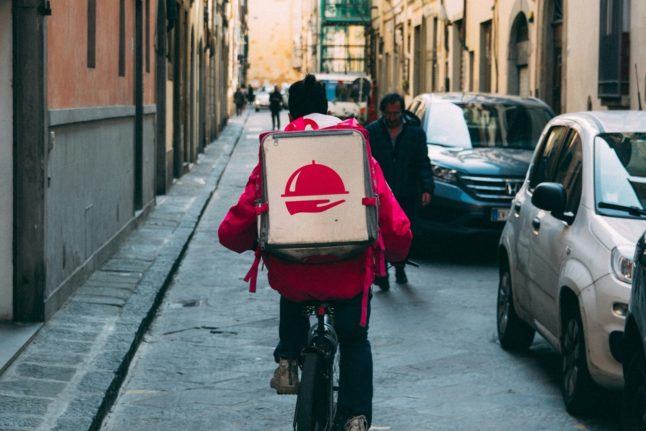Weapons ban zone to be established in Vienna-Favoriten
Following a series of severe knife attacks in the Reumannplatz area of Vienna-Favoriten, the Ministry of the Interior has announced the establishment of a weapons ban zone in the vicinity. Interior Minister Gerhard Karner (ÖVP) described this measure as an initial response to the recent incidents.
This will mark the third weapons ban zone in the Austrian capital, expected to be implemented in the coming days. Existing zones are situated at Praterstern in Leopoldstadt and along the Danube Canal in parts of Franz-Josefs-Kai, which have been in effect since February 2019. Establishing the zone requires an ordinance from the provincial police directorate, granting police the authority to conduct searches and confiscate weapons.
Violators will face administrative fines, although certain exemptions apply for individuals carrying weapons as part of their occupation or with proper permits.
Karner stressed that the police are taking decisive action against “juvenile delinquency”, with the weapons ban zone forming part of a broader “package of measures.” Efforts are underway to lower the age of criminal responsibility and strengthen consequences for underage offenders.
Additionally, legislative amendments are being considered to impose a general ban on weapons, mainly knives, in public spaces.
According to the Minister of the Interior, addressing juvenile delinquency requires multifaceted approaches. The selective establishment of a weapons ban zone represents the initial phase of broader efforts to empower law enforcement to combat the circulation of knives in public spaces.
READ ALSO: REVEALED: What are the most common crimes in Vienna?
Everything that changes in Austria in April 2024
From cheaper energy bills for some customers to more expensive cigarettes and changes in the transport sector, here’s what’s coming up in Austria in April 2024.
Purchase of apartments declines sharply
Despite a decrease in real estate prices last year, potential buyers’ appetite for purchasing property remains subdued, as indicated by the latest data from Statistics Austria.
The number of houses and apartments sold in the previous year also significantly declined, reflecting the prevailing market sentiment. Even with the government’s billion-euro construction package in place, this trend is unlikely to reverse anytime soon.
Statistics Austria’s preliminary analysis, released on Monday, reveals a 28.2 percent drop in residential property purchases compared to the previous year. The decline is particularly pronounced in new housing purchases, which plummet by over half to 51.6 percent. Transactions involving existing residential properties also decreased by 20.7 percent.
Simultaneously, after years of steady escalation, real estate prices slowed in their upward trajectory. In 2023, the average purchase prices of houses and apartments experienced a 2.6 percent decrease nationwide, according to Statistics Austria. Specifically, housing prices dipped by 3.7 percent compared to the previous year.
Notably, the decline in prices for new apartments and houses was marginal, registering only a 0.1 percent decrease. The most significant price drops were observed in Upper Austria, Vienna, and Lower Austria.
In contrast to the recent downturn, previous years had witnessed substantial price hikes in existing housing. For instance, in 2021, there was an average annual increase of 13.1 percent, followed by an 11.6 percent surge in 2022. However, the trend reversed last year, with existing apartment prices declining by 4.3 percent and existing house prices dropping by 3.1 percent. Conversely, prices for new apartments and houses remained relatively stable during the same period.
READ ALSO: How Austria’s new plans to avoid a housing crisis will affect residents
Centre-right ÖVP advocates integration for citizenship and voting rights
ÖVP General Secretary Christian Stocker introduced critical points from the party’s “Austria Plan” under the banner of “Preserving Identity and Citizenship”. He said citizenship and voting rights should be earned through integration into Austrian society. At a press conference, Stocker underscored the importance of “adaptation” for those wishing to reside in Austria.
Stocker cited an online survey conducted by Demox on behalf of the ÖVP, which reportedly indicated that Austrians are content with the current legal framework and support maintaining the ten-year waiting period for citizenship. The survey claimed to represent the views of over 1,000 Austrians aged 16 and above and affirmed that voting rights should be exclusive to citizens.
In reference to ÖVP Chairman Karl Nehammer’s directive to Integration Minister Susanne Raab to formulate a guiding cultural concept, Stocker indicated that this initiative would be unveiled by summer. He rejected proposals from other political factions to liberalise voting rights legislation.
However, the FPÖ contested Stocker’s assertions. General Secretary Michael Schnedlitz dismissed ÖVP’s emphasis on identity, tradition, and values as merely pre-election rhetoric to mislead the public. He criticised ÖVP’s actual political agenda as focusing on issues such as gender diversity and inclusion.
NEOS Secretary General Douglas Hoyos criticised ÖVP’s stance as being “myopic, anti-business, and against the interests of thousands of Austrians residing abroad”.
Hoyos suggested that instead of relying on self-commissioned online surveys, the ÖVP should engage in dialogue with Austrian expatriates, many of whom desire to retain their Austrian citizenship despite ÖVP’s stance on dual citizenship.
READ ALSO: Does having a baby in Austria make it easier for parents to become Austrian?
91-year-old man runs over wife
A 91-year-old driver ran over and killed his 84-year-old wife while reversing in the district of Voitsberg, in Styria, on Monday morning. According to the police, the man must not have noticed the accident. Passers-by found the woman lying on the ground.
The driver ran over his wife in Köflach while reversing in his driveway. He had driven the vehicle out of the garage. He then moved away from home to go shopping without stopping. Passers-by found the 84-year-old woman and called the emergency services. According to the police, the emergency doctor was only able to determine that the woman had died.
The 91-year-old only saw what had happened when he came home with the shopping, according to the police. He stated that he had not noticed anything about the accident. The public prosecutor’s office in Graz ordered an autopsy of the body. The driver will be charged with involuntary manslaughter.
Vienna offers free dog registration
Many dogs are not registered in the pet database as required, broadcaster ORF reported. Registration makes it easier to find the owner of lost dogs but costs around €20. Until the end of October, registering a dog will be free of charge during campaigns in the city.
Every year, 500 stray dogs are found and temporarily brought to the animal shelter, where their microchips are read. The information is then compared with the pet database. “It is noticeable that runaway dogs are often already chipped but not registered in the pet database, even though the Animal Welfare Act requires this,” said Ruth Jily, Head of the Veterinary Office. Therefore, around 60 percent of the dogs can not be returned to their owners.
Until October 2024, Stadtservice Wien and Tierquartier are offering Viennese dog owners the opportunity to register their dogs in the pet database free of charge. The offer is only available to Viennese citizens whose dogs have already been chipped. Chipping itself is not possible at the appointments.
An ID Austria is required for registration. If you do not have one, you need a photo ID and proof of the dog’s chip number (e.g. a vaccination certificate). The dog itself can stay at home, the authorities say. “If you bring your dog with you, it must wear a lead and muzzle and wait outside the Stadtservice Wien mobile office,” says Jily.
READ ALSO: Dog tax and insurance: What are Austria’s rules for owning pets?
If you have any questions about life in Austria, ideas for articles or news tips for The Local, please get in touch with us at news@thelocal.at or leave a comment below.



 Please whitelist us to continue reading.
Please whitelist us to continue reading.
Member comments